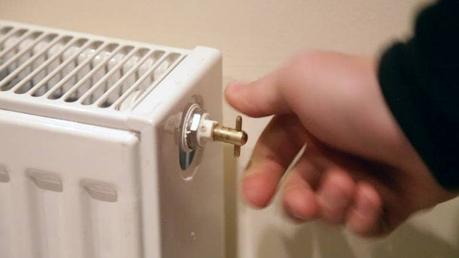Heating is high on the news agenda, as we look for cheap ways to stay warm, and online searches show that there’s been a sharp increase in the number of questions looking to help lower energy bills.
The past month has seen a 108% rise in Google searches around heating, with queries such as ‘how to lower heating bills?’ and ‘help with energy bills’ rising by as much as 2,700%.
This prompted us to get our thinking caps on to provide some practical and effective tips to help reduce household bills this winter.
We believe that the following seven pieces of winter heating advice could collectively save Brits over £500.

Turn the heating down by one degree – save up to £80
Whilst we don’t want to feel cold, our thermostat is often set too high!
Research proves that we put our heating on too high a temperature during winter, so there is an easy saving to be made by turing it down.
Too many of us set the heating to 20°C or more, but 18°C should be comfortable enough.
Turn the thermostat down by one °C to see how you feel and by doing this you can save around £80 or up to 10% on a gas bill.
Check and replace loft and wall insulation – save up to £200
A quarter of the heat lost from a home is through poorly insulated roof spaces.
If your house is old it may have just 100mm of loft insulation depth, but change this to the recommended amount, 220-270mm, and save as much as £200 on energy bills.
Once done, this lasts for decades so can be worth thousands over time.
Only heat the room you use – save up to £115
A very simple and easy mistake to make is heating our whole property.
Turn off radiators in rooms that are not in use as this will allow your boiler to work more efficiently, make the room you are in warm up faster, and can save up to £115 on heating if used daily.
Just make sure not to turn radiators off in the room with the thermostat or it will cause the boiler to work harder and affect temperatures around the rest of the home.
Avoid leaving heating on all day – save up to £150
When it is only 2°C outside you will want the heating on all day, but if it’s around 10°C, target the morning and evening when the sun isn’t out to feel true effects.
Save money by ensuring your heating is on a timer so it is only used for a few hours per day.
By cutting usage from 12 hours to 6, you could save up to £150.
Bleed and maintain radiators – save up to £130

Regular radiator maintenance can save you a lot of money.
A quick and easy job that will improve the efficiency of your radiators is bleeding them to release trapped air.
Check for cold spots at the top of a radiator to allow hot water to circulate freely and you can lower bills by around £130 a year.
Prevent draughts – save up to £45
Place draft excluders between doors and windows to block those gaps, as this will leave the room feeling warmer for longer.
This stops cold air from entering the room you are in as long as the doors are left closed too, and the Energy Saving Trust predict this saves as much as £45 a year.
Don’t block radiators with furniture – save up to £50
A common mistake people often make is placing large furniture in front of their radiators.
This stops the flow of warm air and can cost more money.
Blocking radiators with appliances such as a sofa, armchair or table, will make a room feel colder and means a boiler has to work harder.
Leave at least 20cm to better distribute heat.
Think about redesigning or rearranging your rooms for winter to get the most out of heating, and if your radiators look ugly, then upgrade to designer radiators to improve the aesthetic.
Check out our other winter energy tips
You don’t have to stop at these 7 winter heating saving ideas!
There are lots of smaller things you could do to keep warm during winter – and many of them don’t include using your home’s heating at all.
Take a look at the other guides below for some more of our winter energy saving advice and how to fix a range of problems you may face throughout the colder months.







